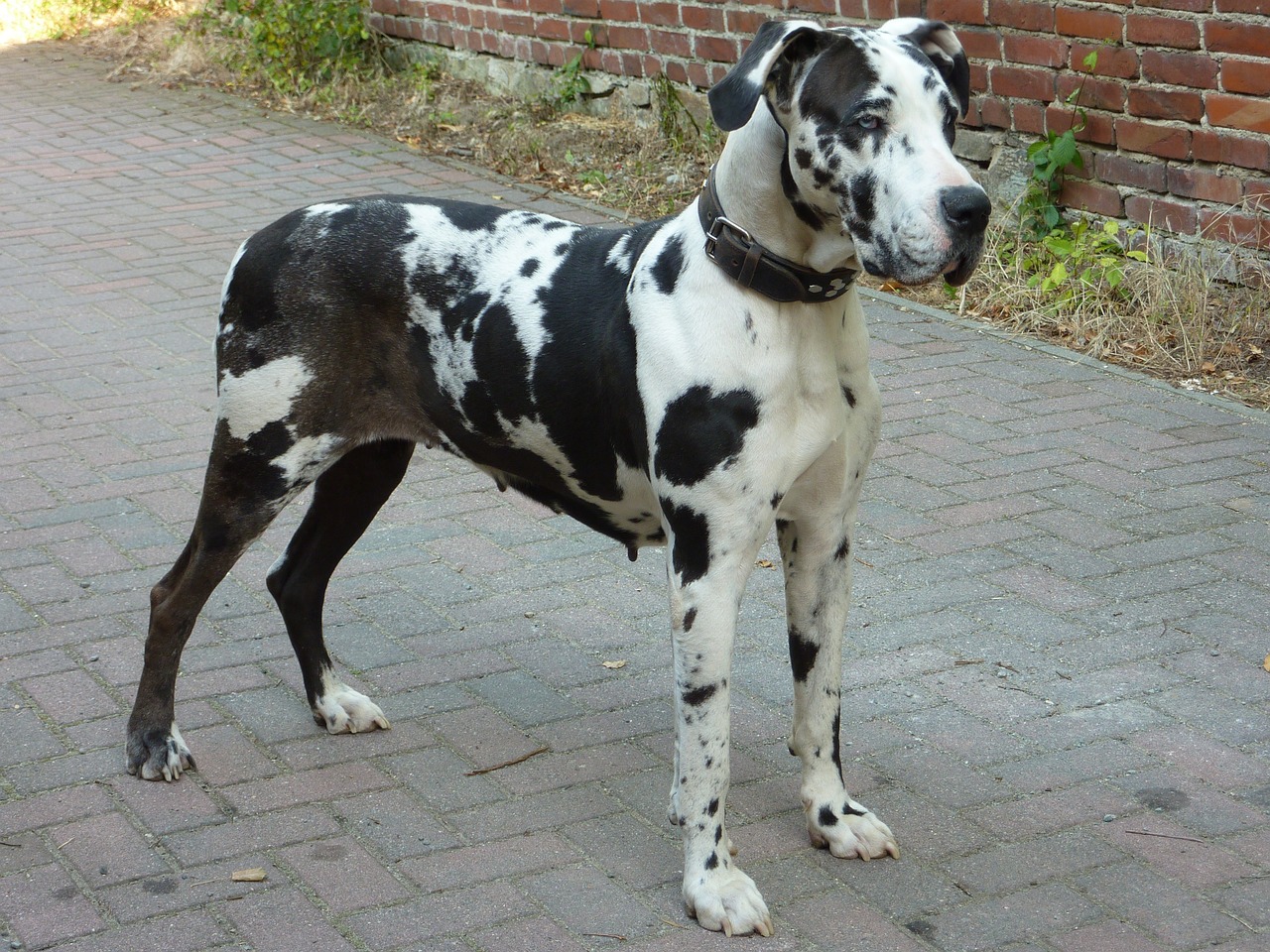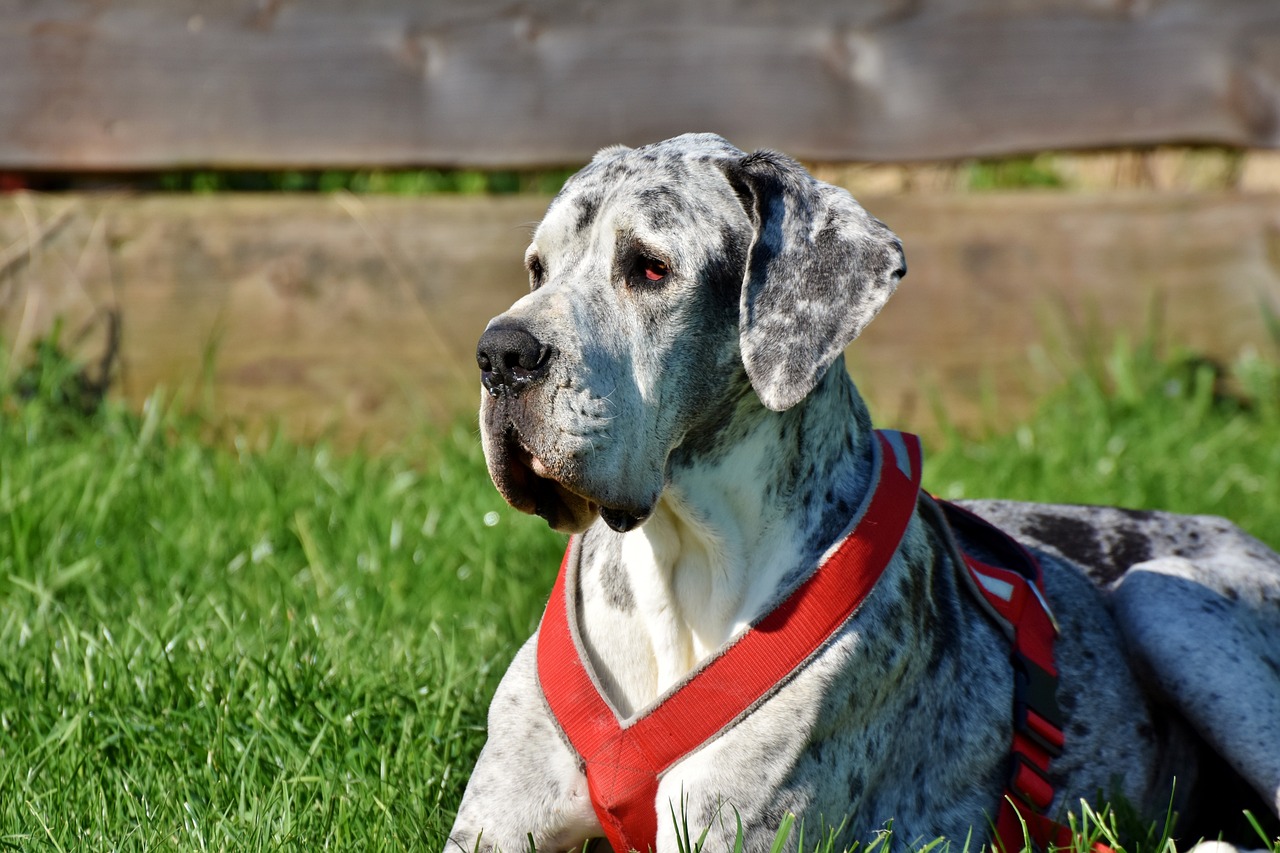Great Danes are known for their majestic stature and gentle nature. As a breed, they usually have a healthy appetite, making it a cause for concern when they suddenly stop eating. Understanding the reasons behind this change in eating habits is vital for ensuring the health and well-being of your Great Dane. This article will explore why a Great Dane might not be eating and guide when to seek veterinary care.
Understanding Great Dane Dietary Patterns
Everyday Eating Habits of Great Danes
Understanding your Great Dane’s regular eating habits will help you identify any significant changes. Some Great Danes eat heartily, while others may be more measured in their eating pace. A deviation from their regular pattern can be the first sign of an issue.
Common Reasons Behind Loss of Appetite in Great Danes
Environmental and Psychological Factors
Changes in environment or routine can impact a Great Dane’s appetite. This breed can be sensitive to living conditions or family dynamics alterations. Stress, anxiety, or depression can also lead to reduced food intake.
Dental Health Concerns
Dental issues such as tooth decay, gum disease, or oral injuries can cause discomfort while eating, leading to decreased appetite. Regular dental check-ups are crucial for maintaining oral health in Great Danes.
Dietary Changes and Dislikes
A sudden change in diet or feeding a Great Dane food they dislike can result in them refusing to eat. Introducing new foods gradually and considering your dog’s taste preferences can help.
Age-Related Appetite Changes
As Great Danes age, they may experience a decrease in appetite. This can be a natural part of aging, but ensuring they receive adequate nutrition is essential.
Medical Reasons for a Great Dane Not Eating
Gastrointestinal and Digestive Issues
Conditions like gastritis, intestinal blockages, or other gastrointestinal disorders can lead to a loss of appetite. Symptoms such as vomiting, diarrhea, or constipation alongside a lack of eating should prompt a visit to the vet.
Serious Illnesses
Diseases such as cancer, kidney failure, or liver problems can cause a decrease in appetite. Early veterinary intervention is crucial for these health concerns.
Behavioral Factors Influencing Eating Habits
Boredom with Food
Great Danes might sometimes become bored with their food. Introducing variety or rotating between different nutritious foods can rekindle their interest in meals.
Attention-Seeking Behavior
Occasionally, a Great Dane might refuse to eat to gain more attention from their owners. Understanding and addressing these behavioral needs is essential.
When to Seek Veterinary Care
Prolonged Refusal to Eat
If your Great Dane hasn’t eaten for more than 48 hours, seeking veterinary attention is advised, as prolonged fasting can lead to health issues in large breeds like Great Danes.
Accompanying Symptoms of Concern
Be vigilant for symptoms like lethargy, vomiting, diarrhea, noticeable weight loss, and refusal to eat, as these can be indicators of serious health problems.
Rapid Weight Changes
Sudden weight loss or gain, especially in large breeds like Great Danes, is a significant concern and warrants immediate veterinary care.
Behavioral and Physical Changes
Any drastic changes in behavior or physical condition, coupled with a lack of appetite, warrant a visit to the vet.
Preventative Care and Dietary Management
Ensuring a balanced diet, regular feeding schedule, and regular veterinary check-ups can prevent many causes of appetite loss in Great Danes.
A Great Dane not eating can worry any pet owner, but understanding the potential reasons and when to seek veterinary help is critical. Regular monitoring of their eating habits and health, coupled with timely veterinary care, will help maintain the well-being of your gentle giant.
Tips for Getting Your Great Dane to Eat
Great Danes, known for their gentle temperament and imposing size, typically have hearty appetites. However, there may be times when your Great Dane might seem less interested in eating. This article section will provide helpful strategies to encourage your Great Dane to eat, ensuring they receive the nutrition for their significant and unique needs.
Enhancing Meal Appeal with Food Toppers
Adding Flavor and Excitement to Your Great Dane’s Diet
One effective way to encourage a Great Dane to eat is by adding food toppers to their meals. These can include a spoonful of wet dog food, cooked, lean meat, or a sprinkle of cheese. Toppers add a burst of flavor and introduce new textures that can make meals more enticing to your dog.
Importance of Hydration in Dog Diets
Keeping Meals Moist and Appetizing
For some Great Danes, especially older ones or those with dental issues, dry kibble can be less appealing. Adding water or low-sodium broth to their food can make it easier and more palatable. This also helps keep your dog well-hydrated, which is crucial for their health.
Switching Dog Food Brands with Care
Finding the Perfect Match for Your Great Dane
If your Great Dane consistently turns away from their food, it might be time to try a different brand or formula. When switching dog foods, it’s essential to do so gradually over a week or more to avoid upsetting your dog’s stomach.
Setting a Regular Feeding Routine
Consistency is Key for Great Dane Eating Habits
Great Danes benefit from a regular feeding schedule. Having set meal times helps regulate their appetite and makes them more likely to eat their meals when served.
Linking Exercise with Appetite
Physical Activity to Stimulate Hunger
Regular exercise is essential for your Great Dane’s health and can also help stimulate their appetite. A good walk or play session before meals can increase their hunger, making them more inclined to eat.
Exploring Homemade Meal Options
The Appeal of Home-Cooked Meals for Great Danes
Sometimes, incorporating homemade meal options can be a great way to entice a picky eater. Simple, dog-safe recipes, including lean meats, vegetables, and rice, can be a healthy addition to their diet. Always consult with a veterinarian before making significant dietary changes.
Conclusion: Ensuring Your Great Dane Enjoys Their Meals
Encouraging a Great Dane to eat may require trial and error with different foods and strategies. However, with patience and attention to their specific needs, you can help ensure your Great Dane eats well and enjoys their meals. If your dog’s lack of appetite persists, it’s essential to consult a veterinarian to rule out any underlying health issues.
Frequently Asked Questions About Why Great Dane Might Not Be Eating

1. Why is my Great Dane not interested in their usual food?
A change in a Great Dane’s interest in food can be due to various reasons, such as stress, dietary changes, or underlying health issues. It’s essential to monitor any additional changes in behavior or symptoms. If the disinterest in food continues for more than a couple of days, a consultation with a veterinarian is advisable.
2. Can dental problems cause my Great Dane to stop eating?
Yes, dental issues like tooth decay or gum disease can make eating uncomfortable or painful for Great Danes, leading to a loss of appetite. Regular dental check-ups and maintaining oral hygiene are essential to prevent these problems.
3. How does changing my Great Dane’s diet affect their eating habits?
Sudden changes in diet can disrupt a Great Dane’s eating habits. Introducing new food should be done gradually, ensuring the food is appropriate and appealing to your dog.
4. Is it normal for older Great Danes to eat less?
As Great Danes age, their appetite may decrease due to a slower metabolism and changing nutritional needs. It’s important to adjust their diet to ensure they continue to receive the necessary nutrients.
5. Could an upset stomach be why my Great Dane isn’t eating?
Gastrointestinal issues, like an upset stomach, can cause a temporary loss of appetite in Great Danes. If symptoms like vomiting or diarrhea accompany this, it’s essential to consult a veterinarian.
6. What serious illnesses might cause my Great Dane to stop eating?
Serious illnesses such as cancer, kidney failure, or liver disease can cause a decrease in appetite in Great Danes. Early veterinary consultation is crucial for diagnosis and treatment.
7. Is my Great Dane bored with their current food?
Over time, boredom with the same food can cause Great Danes to lose interest in eating. Introducing variety or rotating between different nutritious foods can help maintain their interest in meals.
8. Can emotional stress lead to my Great Dane not eating?
Emotional stress or anxiety can lead to a decreased appetite in Great Danes. Identifying and addressing the source of stress is essential for their overall well-being.
9. How long can a Great Dane go without eating before it’s a concern?
While a Great Dane might skip a meal occasionally, going without food for more than 48 hours is concerning and warrants a visit to the veterinarian.
10. What foods might cause my Great Dane not to eat?
Some Great Danes may have sensitivities or dislikes to certain ingredients in their food, leading to a refusal to eat. Observing your dog’s reaction to different foods and consulting a vet for dietary advice is essential.
11. Does lack of exercise affect my Great Dane’s appetite?
Insufficient exercise can reduce a Great Dane’s appetite. Regular physical activity is vital for stimulating hunger and maintaining overall health.
12. What should I do if my Great Dane is not eating and showing other symptoms of illness?
Suppose your Great Dane is not eating and displaying symptoms such as lethargy, vomiting, or unusual behavior. In that case, immediate veterinary attention is necessary as these could be signs of a severe health issue.
13. Can parasites cause a loss of appetite in Great Danes?
Yes, parasites such as worms can lead to a loss of appetite in Great Danes. Regular deworming and veterinary check-ups are essential for prevention and detection.
14. When should I be concerned about my Great Dane’s lack of appetite?
Concern should arise if your Great Dane’s lack of appetite lasts more than two days and is accompanied by other worrying symptoms or signs of rapid weight loss or dehydration.
15. Should I change my Great Dane’s diet if they are not eating?
Before changing your Great Dane’s diet, it’s essential to understand the reason behind their lack of appetite. Consulting with a veterinarian can guide the best action and appropriate dietary changes.
